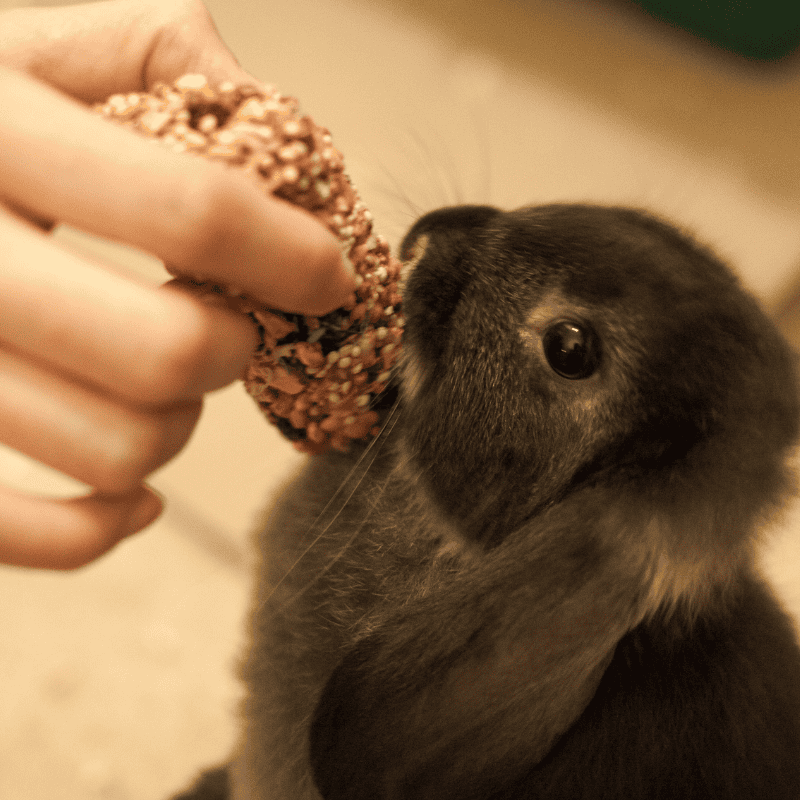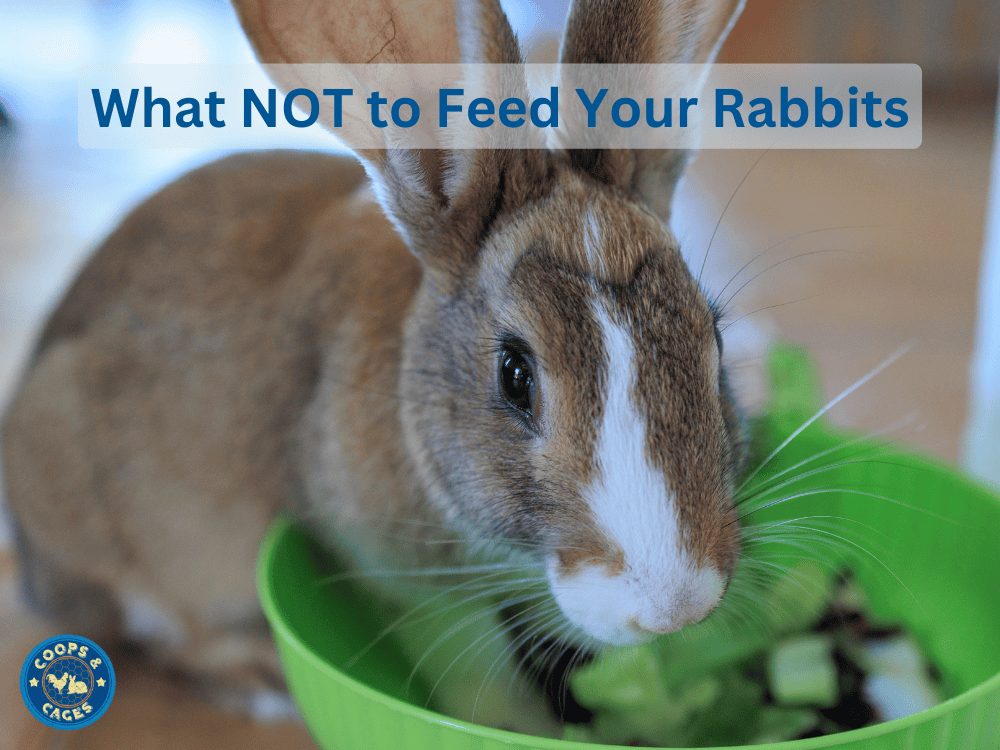As a devoted rabbit owner, I understand the importance of providing our furry friends with a safe and nutritious diet. While it’s tempting to share every snack and treat with our beloved bunnies, not all foods are suitable for their sensitive digestive systems.
In this comprehensive guide, we’ll delve into the world of rabbit nutrition, uncovering the foods that should be avoided at all costs. From certain vegetables to toxic plants and processed pet treats, we’ll leave no stone unturned in our quest to keep your rabbits healthy and happy.
Whether you’re a seasoned rabbit owner or new to the world of bunny companionship, this guide is your go-to resource for ensuring your rabbits thrive.
Certain Vegetables and Fruits
As a rabbit owner, it’s your responsibility to know what foods pose potential risks to your bunny. But don’t fret, we’re here to help you navigate the grocery aisle and keep your fluffy friend hopping with joy.
Let’s uncover the forbidden fruits and veggies that rabbits need to avoid. Vegetables and fruits that rabbits CANNOT eat:
- Avocado
- Cauliflower
- Chilli
- Corn
- Edamame
- Iceberg lettuce
- Onion (including leek)
- Potato (including sweet potato)
- Rhubarb
- Tomato leaves and vines
Domestic rabbits cannot eat any seeds or pits, as they contain toxic chemicals. If you’re giving them a fruit that usually contains seeds or pits, they will need to be removed fully before offering the fruit to your bunny.
Most fruits are very high in sugar. Therefore, only ever offer your rabbit fruit in limited quantities. Fruit is a special occasion treat only!
Rabbits can also not eat any nuts.
Animal Products
When it comes to meat and dairy, rabbits are strictly herbivores. They thrive on a diet rich in greens and fibrous veggies, so it’s best to keep any animal-derived products far from them to ensure their digestive health and overall well-being.
Animal products rabbits CANNOT eat:
- Dairy products (including milk, yogurt and cheese)
- Eggs
- Honey
- Meat (including poultry and fish)

Toxic Plants and Flowers
Did you know that most houseplants are toxic to bunnies?
Pet rabbits have lost the ability to determine good or bad plants since they were domesticated. As a result, they will ingest almost any plant they think looks enticing.
As a rabbit owner, it is your job to keep toxic plants and flowers out of reach. This includes removing them from your yard, ensuring they don’t grow near your rabbit hutch, and blocking access to houseplants if your rabbit free roams in your home.
Toxic plants for rabbits include:
- Buttercups
- Daffodil
- Dahlia
- Hydrangea
- Ivy
- Lily
- Poppies
- Tulips
Processed Pet Treats
Browsing the pet store aisles, it’s easy to be enticed by the colourful array of treats marketed for rabbits. But as savvy caretakers, we know that not all treats are created equal.
While some claim to be “rabbit-friendly,” a closer look at the ingredients reveals high levels of sugar, artificial additives or even harmful preservatives.
Take, for instance, brightly coloured yogurt drops or sugary fruit blends. These may seem enticing, but they can wreak havoc on a rabbit’s delicate digestive system.
It’s essential to scrutinise labels and opt for natural, bunny-safe treats to ensure our furry friends stay healthy and happy.
Processed pet treats you should avoid include:
- Anything with high levels of sugar
- Cereal-based sticks
- Milk-based yogurt drops
- Pellet mixes containing seeds or corn

Human Food
Resist the urge to share your snacks with your bunny buddy! While it may be tempting to offer a bite of your sandwich or a nibble of your cookie, rabbits simply can’t process human foods like we do. Their sensitive digestive systems are designed for a diet rich in hay, greens and pellets.
Human foods that rabbits CANNOT eat:
- Baked goods (including bread, cake and biscuits)
- Chips
- Chocolate
- Drinks other than water (including juice, caffeinated beverages and alcohol)
- Fried foods
- Lollies
- Spicy foods
Additionally, remember that rabbits cannot take human medications; always consult a veterinarian for proper medical care tailored to your bunny’s needs.
Ian’s Wrap
Your bunny will eat anything you put in front of it. It is your responsibility as a pet owner to be informed on what is toxic for bunnies and only offer foods that are healthy and nutritious.
The basic rule in feeding bunnies and their delicate stomachs is, “If in doubt, don’t let them eat it!”
If you suspect that your pet rabbit has accidentally eaten something it shouldn’t, contact your local vet right away for advice.



